
Alumni Voices
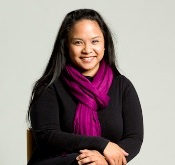
Christine Aguon, SU Class of '08
Major: Art History
Special Projects Manager, The 5th Avenue Theatre
My liberal arts education simply instilled in me the importance of asking “why and how?” This approach to life has helped me both professionally and personally. Why things happen and how I can fix, change, or better the situation truly stems from the critical analysis I faced each day studying artists and their work during my time at Seattle U. In addition, the encouragement and support from my peers and the faculty (which felt much like a family) have helped me in my current position—because everything takes a village and everyone should always remember that you need people!
Joyce Allen, MEd, SU Class of '09
Major: Psychology (University of Notre Dame)
MEd, Adult Education and Training, Seattle University
University Registrar, Seattle University
I received my liberal arts education at the University of Notre Dame in the 1980s. None of my peers who went to community colleges or state schools received an education like mine. A combined core class mixing literature and the study of utopian societies was central to my freshman year. Visiting more than 20 countries during my year-long study abroad in Innsbruck, Austria defined my sophomore year. A trip to rural Kentucky over spring break with the Center for Social Concern defined my junior year and my research assistant position on a graduate student’s dissertation project defined my senior year.
Douglas Breithaupt, SU Class of ’81
Major: History
President, College Planning Network
My liberal arts education from Seattle University did not teach me how to do a specific job. What it did was to provide me with a firm educational foundation and give me the tools and confidence to learn how to do almost any job.
Steve Delmore , SU Class of '85
Major: Public Affairs
Executive Vice President, Merrill Gardens LLC
When I graduated from Seattle University in 1985 I was older at twenty eight then most graduates. I had more practical work experience than other undergraduates so I felt ready to apply some of what I had learned with my liberal arts degree. My takeaway’s were a solid foundation of a Jesuit Education and a real purpose for applying social justice in all that I do. Looking for a position that would allow me opportunity to give back.
In 1993 I started Merrill Gardens with two other people, this was more than just a business. It was an entrée into providing housing and care to those potentially most vulnerable. Although a private company we have housed moderate and low income seniors as well as donated time talent and treasure to senior venues.
There was and is a guiding force that is pointing the way for me as I work and evolve.
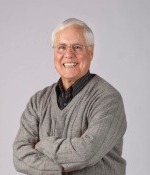
Jim Dykeman, SU Class of ’61, Seattle University Board of Regents Member
Majors: Philosophy and History
President, DYMARCO Executive Recruiting
Management Recruiters International, Inc.
For me a Liberal Arts education is not a ‘one thing’ but a ‘many thing’ that is dynamic and expands horizons of thought. How and where does this happen in Liberal Arts? It happens in History where perspective is built; it happens in Philosophy where logic is developed, it happens in Moral Theology where bench marks are created, it happens in literature where thinking is displayed, it happened in Fine Arts where beauty and ugliness is played, where Music opens mind and Visual Arts show us a world beyond our own domain. It happens in Criminal Justices courses; it happens in African Studies, it happens in the mystery of the Sciences.
Melissa Ettman, SU Class of 2011
Majors: Political Science and Photography
AmeriCorps
I graduated in 2011 with my BA in Political Science and Photography. I didn't look for jobs right out of school because I flew off to Portland Maine to begin a cross country cycling trip to raise money and awareness for the Affordable Housing cause. Since that cross country trip I have devoted 2 years to national service through AmeriCorps. None of these adventures required a college degree. My peers in the programs ranged from graduate student and professionals on sabbatical to 19 year olds working to earn their GED. At face value it would seem my liberal arts education was a waste of time and money, but nothing is farther from the truth. My liberal arts education is the exact thing that made me successful in these last 2 years since graduating.
Each community I have served, I have served to the best of my ability because I can see the complexities and challenges faced by those in need. I know where to look to find the answer to the question "Why is this happening?" While leading an AmeriCorps team gutting houses in the Rockaways of New York after Superstorm Sandy, I was able to show my team the complex political challenges faced by people with little political leverage and limited capital. I never studied "The Politics of Disaster Response" but I knew how to think and I knew where to look for the answers.
As I look forward to graduate school and career paths I am quite confident it will not be with government, politics, or even in the arts as my majors might suggest. It will be an amalgamation of the many things I was exposed to during my time at Seattle University. That exposure is based upon the breadth of the curriculum I was required to take part in. The exposure was not always sturdy and glamorous, but it is from challenges and discomfort that we gain the greatest growth and potential.
Zach Gerdes, SU Class of '11
Major: Psychology
Admissions Counselor, Seattle University Admissions
A Seattle University liberal arts education instilled in me a drive towards holistic professional formation. I will not strive to be a cog in an overwhelming system for a paycheck. I will think critically, always seeking progress; I will connect my work to grander ideas of meaning, purpose, and a connection to the larger picture. In doing so, the profound implications for increased happiness and productivity are clear – emotionally on a personal level and empirically according to industrial/organizational psychology research.
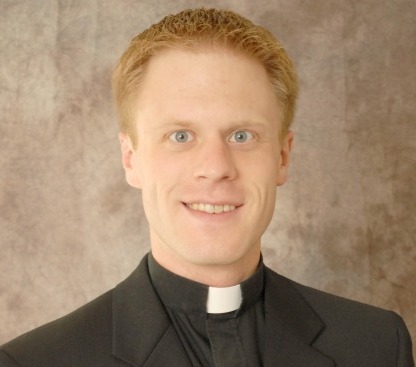
Fr. Kevin Grove, CSC, SU Class of '04
Majors: History, English, Philosophy
Minor: Medieval Studies
Master of Divinity, University of Notre Dame, 2009
Ph.D. Candidate, Philosophical Theology, University of Cambridge (Anticipated completion, 2014)
Doctus fidelis suavis. Learned, trusty, and winsome. We freshmen in the University Honors Program memorized the Roman Ennius’ words about character... now ten years later we remember not only Ennius but a host of others… Through the guidance of good professors, these conversation partners taught us to think… we started to become “learned, trusty, and winsome,” habits ever in need of being refined but which turn out to be remarkably transferrable skills.
Ann Vavra Hammond, SU Class of ’69
Major: Psychology
Retired Pastoral Councilor, Hospital Chaplain
Seattle University’s Jesuit education built on my excellent high school and taught me how to think independently, to research options, to verify facts and look at the heart of the matter. Values found in my Christian faith have been cemented over the years.
Nicholas Hendricks, SU Class of '11
Major: Philosophy / Honors
Minors: German and Italian
Graduate student at the University of the Sacred Heart in Brescia, Italy
I was actually quite excited to write a bit about a liberal arts education, as it has done me very well, and put me on paths I never expected to find... Only the disciplines of language, literature, history, anthropology, art and so forth give humans the capacity to communicate with each other over varying cultural backgrounds and to deepen that communication, to fully understand what that communication in its various manifestations is, how it worked before, how it works now, and how it can work, i.e., to clarify old ways of understanding, enlighten ourselves as to our current ones, and usher in new completely new ways of comporting ourselves towards the world around us. To put it differently: the liberal arts show us the underlying connections between the apparent diversity of all disciplines.
Courtney Hudak, SU Class of ’06
Major: Philosophy
Poet and Seattle Attorney
As both a later-in-life student and the first person in my family to go to college, I literally had no idea how much my liberal arts education would change my life. The broad range of ideas I encountered (some for the first time, others in new ways) incalculably expanded my beliefs about what is possible. As well, the tools I developed for encountering (and processing) ideas and the world help me every day, in both my creative and my more pragmatic work.
Joseph Hueffed, SU Classes of ’93 and ’98
Major: Economics
MBA, Albers School of Business & Economics, Seattle University
IT Project Manager, Nordstrom
In today's economy people must constantly retool and adapt to market conditions. The most critical component of a Liberal Arts education is that it "teaches people how to learn" rather than teaches specific skills; skills which often may become obsolete after a few short years.
Liberal Arts graduates are life-long learned. Combined with the social justice emphasis of a Jesuit education, Seattle U graduates are equipped and ready to change the world through leadership and service.
Caitlin Joyce, SU Class of '11
Major: Strategic Communications
Minor: Creative Writing
Marketing Coordinator, Seattle University Alumni Relations
I am versatile. I am more than my degree. I can share with you the why, instead of simply supplying you the what. I need to know context, because the whole picture is more important than the small bit I can see before me. I am the product of a Liberal Arts Education.
I may have a degree in strategic communications, but that doesn’t mean I can’t discuss geologic formations and the business ethics of a corporate monopoly. I can speak fluent philosophy, even if I can’t say the same for the French I studied.
The gift that my Liberal Arts Education has given me, is the gift of relationships, I can engage in a meaningful conversation with almost anyone, and in a business world that’s all about the relationship, that’s worth its weight in gold.
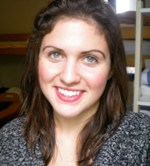
Amelia Kent, BSW, SU Class of '11
Major: Social Work
Peace Corps Volunteer
From her Nov. 21, 2012 blob post: I am grateful for my social work education which has changed me in so many ways and really opened my heart as well as my mind to the injustice in the world. My education was empowering and gave me the insight I needed to inform my service and inspire my advocacy.
Tim J. LeClaire, SU Class of '82
Major: Philosophy
M.A. Organizational Leadership, Gonzaga University
Ph.D. candidate in Philosophy of Leadership Studies
Senior Account Manager, Premera Blue Cross
I consider my acceptance into the Honors Program at Seattle University to be one of my greatest gifts in life. My subsequent academic experiences and coursework leading up to a BA in Philosophy from Seattle University prepared me for the rigors of becoming a critical thinker and lifetime learner. In my professional life, I have the confidence that I can contribute logical and reasonable approaches to solving healthcare dilemmas.
Anika Lehde, SU Class of ’01
Major: History
Minor: Women Studies
Owner, Projectline Services, Inc.
I believe that the future will belong to those who are flexible thinkers, who a have broad understanding of science, culture, and history. The trend towards education for the sake of salary short changes not only the student, but humanity as well. What is learned through a liberal arts education is a solid foundation upon which specialties and passions can be built. It creates leaders with an essential understanding our world.
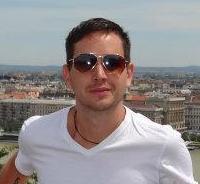 Patrick McLennan, SU Class of ’09
Patrick McLennan, SU Class of ’09
Major: Political Science
M.A. Global Finance, Trade, and Economic Integration, University of Denver
Ernst & Young LLP, Transfer Pricing Staff
I couldn't brag more about the liberal arts education I received from Seattle University. It prepared me to think both critically and practically about the world we live in. From my time in graduate school, to working with the South African government, to my current job in international tax services, no other place prepare me more. Seattle U demanded that we always think with a holistic mindset, as to inform our decisions with both confidence and compassion. I owe much of my success to my time at Seattle U., and I couldn't be more proud to be a Redhawk.
Alexander Mitchell, SU Class of '10
Major: Political Science
Minor: German
Applying for a career as officer in the U.S. Forces
The term "well-rounded individual" is often used lightly, but in a very real sense, my Liberal Arts education has prepared me for a career in many different fields by developing my communication skills and expanding my knowledge of the world and its cultures… the opportunity to learn another language and to study abroad was hugely important to me, and was a formative experience that granted me a new perspective on life in the United States and in the world at large.
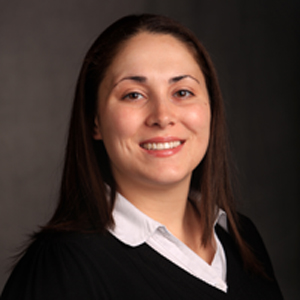
Kristen Morgan, SU Classes of ’09 and ’13
Major: Political Science
Master of Public Administration, Seattle University
Development Director, Matt Talbot Center
My liberal arts education from Seattle University provided a well-rounded and holistic foundation for the future. Rooted in Jesuit values, I learned how to think critically and developed timeless skills that will continue to benefit me in both my professional and personal life. Through a broad range of concentrations, I have become more perceptive about the world around me and my role as a global citizen. I possess tools to face new challenges in an informed and thoughtful way, and I am easily able to adapt to new and changing environments. My education has not only impacted me intellectually, but has also transformed my values, beliefs, and character. Today and always, I value the experience I had at Seattle University and my liberal arts education.
Richard C. Nelson, SU Class of '59
Major: Classics, Charter member of the University Honors Program
LL.B. University of Washington
In Private Practice of Civil Law
I look upon a liberal education as expanding a person’s background beyond what is necessary for everyday living. I look on pursuit of the arts, languages, history and other disciplines associated with the term liberal arts as “experience” of a sort that contributes to better judgment, better decisions and a fuller life than without it. More here.
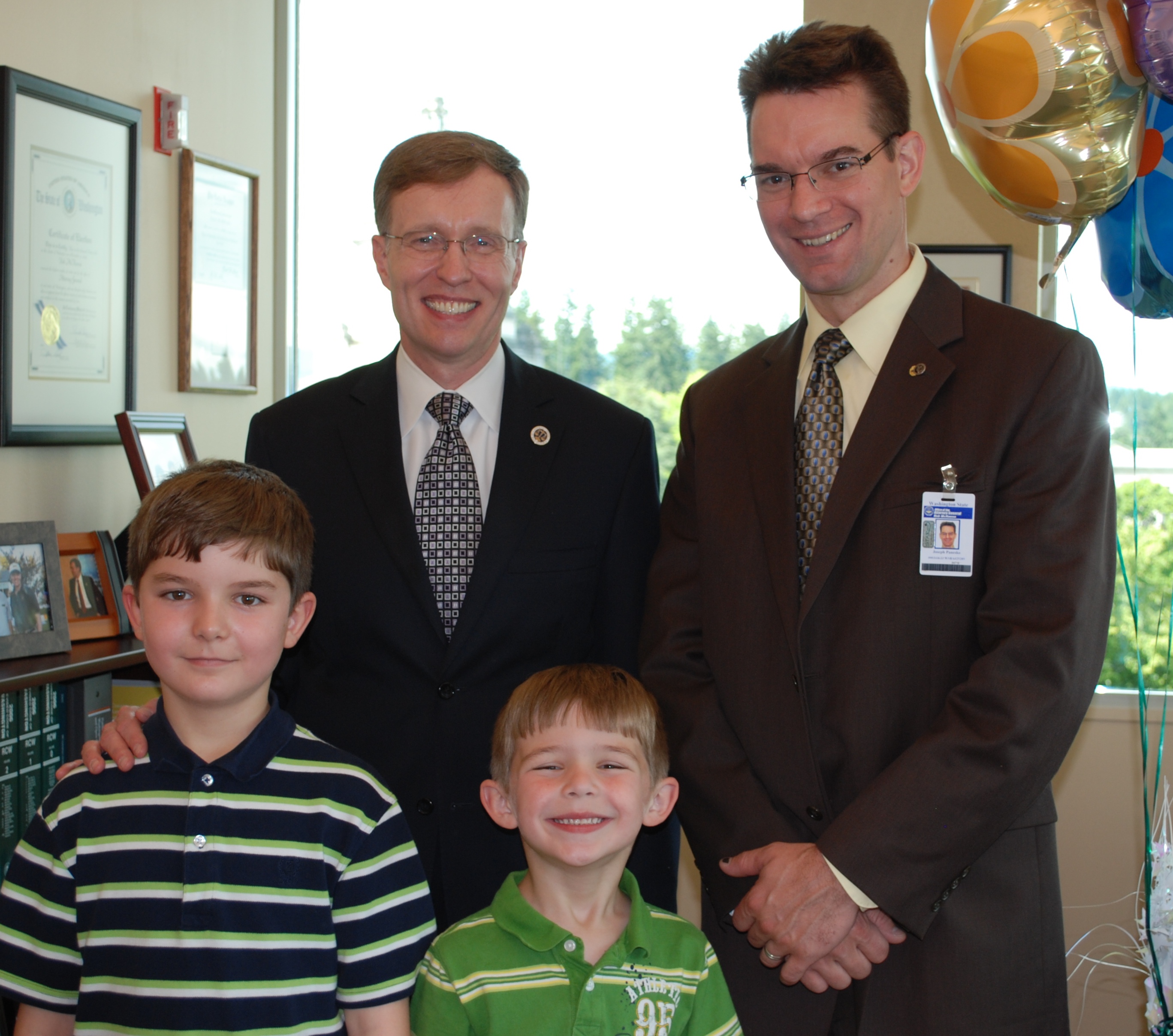
Joe Panesko, JD, SU Class of '92
Major: Philosophy
Graduate Degree: Columbia University School of Law, Class of 1995
Employment: Assistant Attorney General, Washington State Office of the Attorney General
Many people use the phrase “critical thought” or “critical analysis,” but S.U.’s College of Arts and Sciences taught me what those phrases mean: You must engage with the material in order to understand it. You must turn yourself over to the material and allow yourself to be challenged, and changed, by the encounter. In the endeavor, context matters. Don’t approach any question, problem, or assignment without understanding the broader context, which context includes the history behind the problem, as well as your own self-awareness – appreciate the bias/perspective you bring to the analysis, and the bias of all others involved in the problem. By approaching from the broader context, you will obtain a better grasp of the “bigger picture,” and you can see important connections that many others miss.
I look upon a liberal education as expanding a person’s background beyond what is necessary for everyday living. I look on pursuit of the arts, languages, history and other disciplines associated with the term liberal arts as “experience” of a sort that contributes to better judgment, better decisions and a fuller life than without it.
Matt Pierson, SU Class of '07
Majors: International Studies, Spanish
Minor: Mandarin
M.A. International Peace and Conflict Resolution, American University
Vice Consul, U.S. Embassy in Beijing, China in the Foreign Service of the U.S. Department of State
My education at Seattle University taught me the importance of seeing the big picture and how my actions and the actions of those around me affect everyone else in the world. This perspective was critical in my later graduate studies as I lived and worked in post conflict zones attempting to understand the competing narratives and interests that had driven those societies to war.

Laura Rehrmann, FAHP, MNPL, SU Class of ’96
Major: Literature (University of San Francisco)
Master of Nonprofit Leadership (MNPL), Seattle University
President Group Health Foundation & Vice President Community Responsibility Group Health Cooperative
I have heard it said that we are trained for the known, and we are educated for the unknown. A liberal arts education is the best preparation for the unknown. The liberal arts teach you about yourself first, then about others, all in the context of circumstances and time. Studying the arc of human life through the liberal arts lens prepares you to think creatively, analytically, and with flexibility. A Jesuit liberal arts education gives you a foundation of humanity, theology, and philosophy that drives you to service for others in changing the world, no matter what your calling in life may be.
Valerie (Pesce) Ryan, SU Class of ’59
Major: English Literature
My education at Seattle University has informed my life in ways too numerous to count. The Faculty, both lay and Jesuit, was always accessible and willing to converse, debate, act as gadflies - anything to keep us thinking. Without exception, I had teachers who were outstanding in their field. My degree in English Literature, in conjunction with other Liberal Arts courses which people today would like to laugh at because it is not Engineering or Nursing, taught me how to think. I have used my Liberal Arts education every day of my life: at home, at work and in the world.
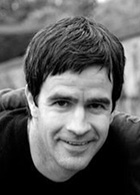
Ryan Sawyer, SU Class of '94
Majors: English and Philosophy
Manager and Owner, Viewpoint Capital Management
Former Director of Strategic Growth, Amazon.com
In my first days at Amazon.com it struck me: before meeting me, many of my colleagues would come to a view of me based on my writing alone. Every email I wrote would matter. My quality of thinking, knowledge of subject matter, ability to persuade: all of it would be on display to hundreds of people, and over time would serve to reinforce my reputation, for better or worse! I had always believed a liberal arts education would be of use in crafting a life worth living; I didn't know it would matter so much to my livelihood! I think back to my time at Seattle U--the attention my professors gave to high quality thinking and writing, the time I put into developing these skills--and I feel lucky.
Jason Scoppa, D.C., SU Class of ’05
Major: English Literature
Chiropractor at Elemental Health
A liberal arts education from SU is all about understanding relationships and studying the human experience. Regardless of what profession one eventually finds one’s self, it is vital for one to have seriously considered the people and movements that have shaped the way we think of ourselves, and how those ideas create the lens through which we view the world. Studying the human experience has value only insofar as one can learn from those experiences, either fiction or non, and apply those lessons to one’s own life."
Paul Valenti, SU Class of ’86
Major: History
MA in Communications, University of Washington
MA in Literature, Eastern Washington University
Job Counselor, The Mayor’s Office for Senior Citizens
Simply put, a liberal education gives students a wide range of broadly applicable proficiencies such as critical thinking, the ability to write clearly and the capacity to absorb, digest, synthesize and understand complex information. A liberal education is aimed at endowing students with broadly applicable skills that become the foundation for what they will spend their lives doing.
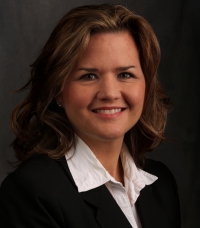
Susan R. Vosper, SU Classes of ’90 and ’10
Major: Psychology & Communications
LEMBA, Albers School of Business & Economics, Seattle University
Assistant Vice President, Alumni Relations, Seattle University
To be the product of a liberal arts education means to have the skills and experiences that will shape not only the mind, but the person as a whole. This has been my experience and one that I have reaped the rewards from not only in my career but in my personal relationships and endeavors. It is a foundation I was given that I continue to draw upon, find value and wisdom in and can apply more than ever to issues in today’s world.
Katie Wieliczkiewicz, SU Clas of ’12
Major: Strategic Communications and Public Affairs
Residential Life Coordinator, College of St. Scholastica
My education has prepared to take sometimes intangible concepts, such as diversity and social justice, and apply these values and lessons to my everyday life. It has taught me how to engage with other people from a lens of human dignity, but also how to challenge those around me who may not always realize the power of their words and actions.